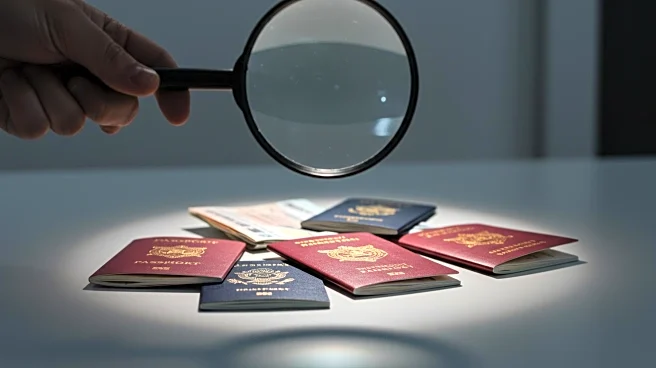What is the story about?
What's Happening?
The Trump administration plans to vet all 55 million foreigners holding U.S. visas, expanding efforts to address alleged abuses of the legal immigration system. The State Department will implement 'continuous vetting' to revoke visas upon finding signs of ineligibility, such as overstays, criminal activity, or terrorist affiliations. This initiative follows a broader immigration crackdown, initially targeting illegal migration but now extending to legal visa holders, including tourists, workers, and students. The process involves reviewing social media accounts for anti-American sentiments, adding complexity to the vetting procedure.
Why It's Important?
This extensive vetting process could impact millions of visa holders, potentially leading to visa revocations and affecting international travel and tourism. The policy may strain diplomatic relations with countries whose citizens face increased scrutiny. It raises concerns about privacy and freedom of speech, as social media posts become part of the vetting criteria. The initiative reflects the administration's focus on national security but may face criticism for potential discrimination and logistical challenges.
What's Next?
The administration's vetting process is likely to face logistical hurdles and legal challenges. Immigration experts and civil rights groups may contest the policy, arguing it infringes on privacy and targets specific demographics. The State Department will need to manage the increased workload and ensure fair application of the vetting criteria. The policy's impact on visa issuance and international relations will be closely monitored.
Beyond the Headlines
The vetting initiative highlights broader debates on immigration policy, national security, and civil liberties. It raises ethical questions about the balance between security measures and individual rights. The focus on social media vetting may set precedents for future immigration policies, influencing how governments assess threats and manage international mobility.















